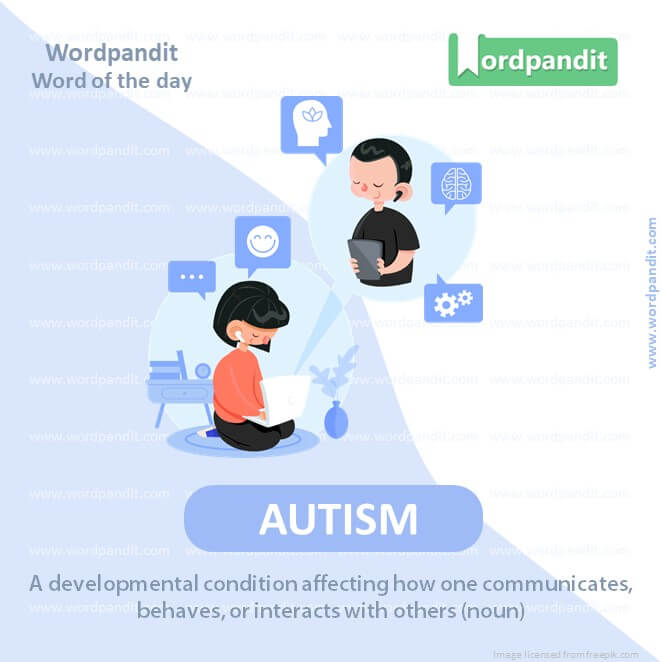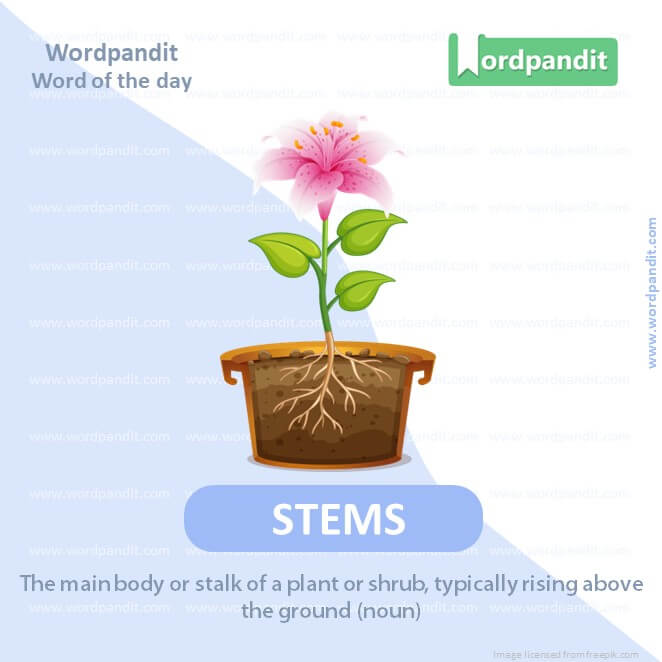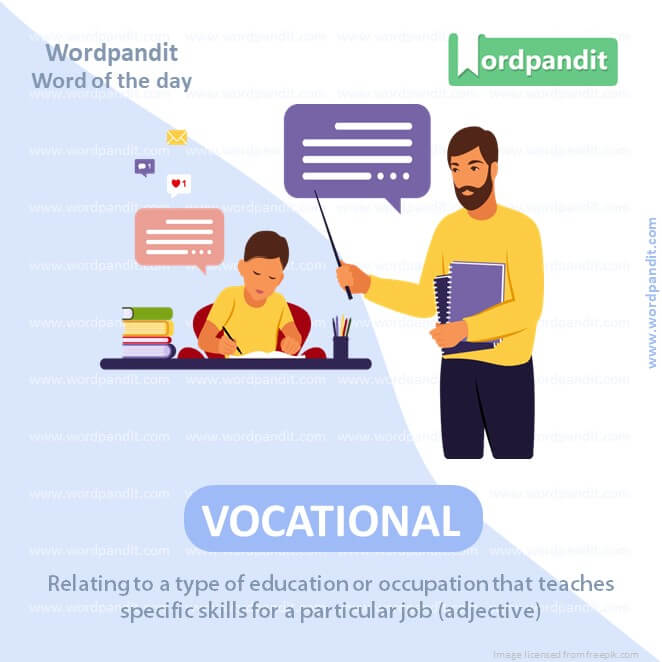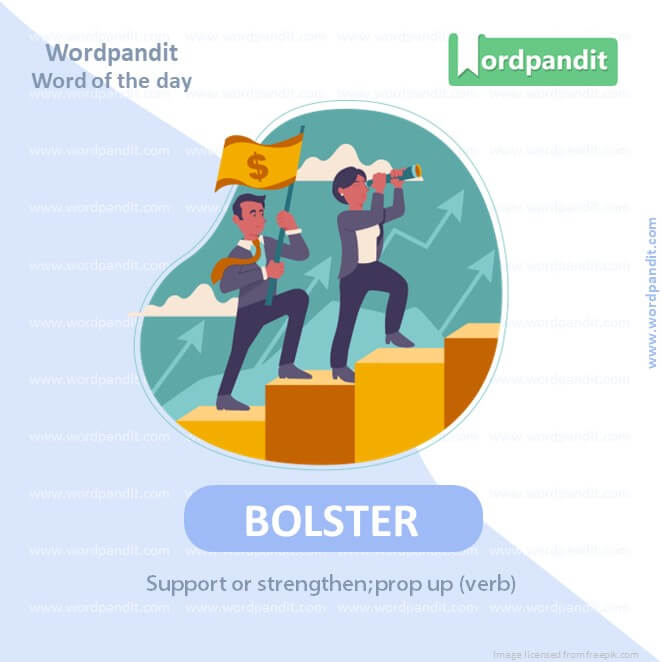Daily Vocabulary Words: List of Daily Used Words in Leading International Newspapers
Hi there. Welcome to this special section @ Wordpandit.
Our endeavour here is very simple: to highlight important daily vocabulary words, which you would come across in leading newspapers in the country. We have included the following newspapers in our selection:
• The New York Times
• The Washington Post
• Scientific American
• BBC
• The Guardian
• Psychology Today
• Wall Street Journal
• The Economist
We are putting in extensive work for developing your vocabulary. All you have got to do is be regular with this section and check out this post on a daily basis. This is your repository of words that are commonly used and essentially, we are posting a list of daily used words. Hence, this has significant practical application as it teaches you words that are used commonly in leading publications mentioned above.
Visit the website daily to learn words from leading international newspapers.

WORD-1: AUTISM
CONTEXT: You likely know at least one autistic person. One in 36 children and approximately 5.4 million adults in the U.S. are on the autism spectrum.
SOURCE: Scientific American
EXPLANATORY PARAGRAPH: Autism is like a way some people’s brains are wired. Everyone thinks and feels things differently, and people with autism might think, feel, or understand the world in their own unique way. It’s just one of the many ways people can be special.
MEANING: A developmental condition affecting how one communicates, behaves, or interacts with others (noun).
PRONUNCIATION: AW-ti-zum
SYNONYMS: ASD (Autism Spectrum Disorder), Asperger’s, PDD-NOS (Pervasive Developmental Disorder-Not Otherwise Specified), neurodiversity, autism spectrum condition, neurodevelopmental disorder
USAGE EXAMPLES:
1. My younger brother has autism and he’s really good at solving puzzles.
2. They started an autism awareness campaign at school.
3. The movie portrayed a character with autism in a positive light.
4. Autism doesn’t define a person; it’s just a part of who they are.

WORD-2: STEMS
CONTEXT: It is far less likely that you know an autistic person at your workplace. The reason for this exclusion stems from a long history of shameful treatment of people with developmental disabilities in this nation.
SOURCE: Scientific American
EXPLANATORY PARAGRAPH: Stems are like the legs and arms of a plant. They hold up the leaves, flowers, and fruits, and help move water and food around.
MEANING: The main body or stalk of a plant or shrub, typically rising above the ground (noun).
PRONUNCIATION: stehms
SYNONYMS: stalks, shoots, trunks, branches, spires
USAGE EXAMPLES:
1. The rose stems were covered with thorns.
2. You can see the water traveling up the stems of celery if you put them in colored water.
3. The stems of the sunflowers reached high towards the sky.
4. She trimmed the stems before placing the flowers in a vase.

WORD-3: EXPANSIVE
CONTEXT: Autistic people have differences from one another in their interests, behaviors and level of social interaction, and these can each serve as challenges and strengths. The term autism spectrum appropriately reflects the expansive range of abilities and differences in support needs across the rapidly growing population of individuals who have been diagnosed.
SOURCE: Scientific American
EXPLANATORY PARAGRAPH: If something is expansive, it’s big and spread out. Like when you spread your arms wide open, it’s like you’re showing how big or expansive something can be.
MEANING: Covering a wide area in terms of space or scope; wide-ranging (adjective).
PRONUNCIATION: ex-PAN-siv
SYNONYMS: vast, wide, broad, extensive, spacious
USAGE EXAMPLES:
1. The expansive ocean seemed to stretch forever.
2. Her knowledge on the topic was expansive.
3. They had an expansive backyard where the kids loved to play.
4. The sky looked expansive with colorful clouds during the sunset.

WORD-4: VOCATIONAL
CONTEXT: By our estimates, among autistic adults who likely needed job supports, only 1.1 percent received public employment services in 2016 through Medicaid or state vocational rehabilitation programs.
SOURCE: Scientific American
EXPLANATORY PARAGRAPH: “Vocational” is a fancy word that talks about jobs and the skills we need for those jobs. Like, if you’re learning to be a baker, a vocational school teaches you how to make yummy cakes and bread.
MEANING: Relating to a type of education or occupation that teaches specific skills for a particular job (adjective).
PRONUNCIATION: vo-KAY-shuh-nal
SYNONYMS: professional, career-based, job-related, technical, trade
USAGE EXAMPLES:
1. She attended a vocational school to learn carpentry.
2. Vocational training is essential for certain jobs.
3. They offer vocational courses in automotive repair.
4. The program helps students make vocational choices based on their interests.

WORD-5: BOLSTER
CONTEXT: They are a central focus of Employment First initiatives to bolster disability employment policy in U.S. states. Given deep cracks in the system that provides services for those with developmental disabilities, we suspect that 99 percent of autistic people who need these services are still without them in 2023.
SOURCE: Scientific American
EXPLANATORY PARAGRAPH: To bolster means to support or make stronger. Imagine if your teddy bear was feeling floppy and you stuffed it with more cotton to make it sit up straight. That’s like bolstering your teddy!
MEANING: Support or strengthen; prop up (verb).
PRONUNCIATION: BOWL-stur
SYNONYMS: reinforce, strengthen, support, prop up, shore up
USAGE EXAMPLES:
1. He read books to bolster his knowledge.
2. The coach gave a speech to bolster the team’s spirits.
3. Pillows can bolster your back when you’re sitting in bed.
4. The community came together to bolster the school’s funding.
WORD-6: DEINSTITUIONALIZATION
CONTEXT: The deinstitutionalization revolution in the mid-1960s began to redress the needs of people with developmental disabilities in the U.S., including autistic people. Previously physicians often advised parents to institutionalize disabled children, perhaps not realizing the horrible conditions in which they would live.
SOURCE: Scientific American
EXPLANATORY PARAGRAPH: Deinstitutionalization is a big word that means helping people who were living in places like hospitals and institutions to move back to their homes and communities. It’s like helping them have a happier and more normal life outside of those big, scary buildings.
MEANING: The process of moving people out of large institutions, like hospitals or asylums, and into their communities (noun).
PRONUNCIATION: dee-in-STIH-too-shuh-nuh-li-ZAY-shun
SYNONYMS: none (specific term)
USAGE EXAMPLES:
1. Deinstitutionalization aimed to provide a better life for individuals with mental illnesses.
2. The government initiated a deinstitutionalization program to improve mental healthcare.
3. The deinstitutionalization of the healthcare system led to more community-based care.
4. Deinstitutionalization has been a significant change in mental health care.
WORD-7: INSTITUIONALIZATION
CONTEXT: The deinstitutionalization revolution in the mid-1960s began to redress the needs of people with developmental disabilities in the U.S., including autistic people. Previously physicians often advised parents to institutionalize disabled children, perhaps not realizing the horrible conditions in which they would live.
SOURCE: Scientific American
EXPLANATORY PARAGRAPH: Institutionalization is the opposite of deinstitutionalization. It means when people, especially those who need extra care, live in big places like hospitals or care homes for a long time. It’s like having a new family in those big buildings.
MEANING: The process of placing individuals, especially those with special needs, in institutions or large facilities for an extended period (noun).
PRONUNCIATION: in-STIH-too-shuh-nuh-li-ZAY-shun
SYNONYMS: none (specific term)
USAGE EXAMPLES:
1. Institutionalization was common in the past for people with disabilities.
2. She works on improving the living conditions in institutionalization facilities.
3. The documentary explored the challenges of institutionalization.
4. Advocates for disability rights have been fighting against institutionalization.
WORD-8: REDRESS
CONTEXT: The deinstitutionalization revolution in the mid-1960s began to redress the needs of people with developmental disabilities in the U.S., including autistic people. Previously physicians often advised parents to institutionalize disabled children, perhaps not realizing the horrible conditions in which they would live.
SOURCE: Scientific American
EXPLANATORY PARAGRAPH: Redress is like saying “I’m sorry” and trying to make things right when you’ve done something wrong. It’s like fixing a mistake to make someone feel better.
MEANING: To make amends for a wrongdoing or to correct a problem; to set things right (verb).
PRONUNCIATION: ree-DRESS
SYNONYMS: remedy, rectify, compensate, make amends, correct
USAGE EXAMPLES:
1. He wanted to redress the damage he had caused.
2. The company offered to redress the customer’s complaint.
3. Redress can sometimes involve apologizing and making things better.
4. The new policy aimed to redress the inequalities in the workplace.
WORD-9: MANDATED
CONTEXT: In 1975 the government mandated that disabled people must have the option to receive public education, and in 1990 it required employers to provide reasonable accommodations.
SOURCE: Scientific American
EXPLANATORY PARAGRAPH: When something is mandated, it means you have to do it because there’s a rule or law that says so. It’s like when grown-ups tell you it’s time to brush your teeth because it’s bedtime.
MEANING: Required or ordered by an official rule or law; something you must do (adjective).
PRONUNCIATION: MAN-dey-ted
SYNONYMS: required, compulsory, obligated, enforced, prescribed
USAGE EXAMPLES:
1. Seat belts are mandated by law to keep you safe in the car.
2. Vaccinations are often mandated for school children.
3. The company mandated a new dress code for its employees.
4. Wearing helmets while riding bicycles is mandated in many places for safety.
WORD-10: WITHERS
CONTEXT: As autistic teens reach adulthood, support withers. Autism research, which is largely focused on early childhood identification, has not yielded an adult system of care to support autistic adults’ needs.
SOURCE: Scientific American
EXPLANATORY PARAGRAPH: “Withers” is a special word used for the highest part of a horse’s back, right where its neck and back come together. It’s like the horse’s upper back, and it’s important when putting a saddle on a horse.
MEANING: The highest point of a horse’s back, where the neck and back meet (noun).
PRONUNCIATION: WIH-thurz
SYNONYMS: none (specific term)
USAGE EXAMPLES:
1. The saddle should be placed correctly over the horse’s withers.
2. Gently patting the horse’s withers can calm it down.
3. The rider adjusted the stirrups to the right height for the horse’s withers.
4. Properly fitting the saddle to the withers is important for the horse’s comfort.











